The Jealousy Man and Other Stories Read online
Page 8
After I’d drunk almost half the bottle I went down to the bar so as not to drink the rest. I saw Victoria Hässel sitting at a table with some people from the other climbing group I had seen the previous day. I sat at the bar and ordered a beer.
‘Excuse me?’
British accent. I half turned. A man, smiling, check shirt, white hair but in good shape for his age, around sixty. I’d seen several like him here, English climbers of the old school. They grew up climbing trad, meaning routes without bolts permanently fixed to the mountain, where they had to provide for their own safety in cracks and holes. On gritstone in the Lake District, where the routes were graded not only by how hard they were to climb but also how great the danger to life was. Where it rained, or was too cold, or was so hot that the eggs of a particularly bloodthirsty type of mosquito hatched and ate you alive. Englishmen loved it.
‘Do you remember me?’ said the man. ‘We were in the same rope team near Sheffield. Must have been in ’85 or ’86.’
I shook my head.
‘Come on,’ he said with a laugh. ‘I can’t recall your name but I remember you were climbing with Trevor Biggs, he’s a local lad. And that French girl who just flew up those slopes the rest of us had such a struggle with.’ His face suddenly became serious as if something had occurred to him. ‘Bloody back luck about Trevor, by the way.’
‘I think you’re getting me mixed up with someone else, sir.’
For a moment the Englishman stood there, open-mouthed and with an expression of mild surprise on his face. I could see his brain feverishly scanning his book of memories in search of his mistake. Then, as though he had found it, he nodded slowly. ‘My apologies.’
I turned back to the bar and in the mirror saw that he sat down with his climbing companions and their climbing wives. Said something and nodded in my direction. They resumed their conversation and they passed around the local guidebook with the climbing routes marked. It looked like a good life.
My gaze moved on to one of the other tables and met Victoria Hässel’s.
She sat there dressed in the climber’s evening outfit: clean climbing clothes. Her hair, which had earlier in the day been hidden under her cap, was blonde, long and flowing. She sat turned towards me, looked as though she had temporarily absented herself from the conversation. She held my gaze. I don’t know if she was waiting for something. A signal. Information about the Schmid case. Or just a nod of recognition.
I saw that she was on the point of standing up, but I was ahead of her and had already placed my euros on the bar. I slipped off the bar stool and left. Back in my room I locked the door.
* * *
—
In the middle of the night I was awoken by a loud bang, like a gunshot. I sat up in bed, my heart beating furiously. It was the window sash; a gust of wind must finally have torn it loose. I lay awake and thought of Monique. Monique and Trevor. I didn’t finally get back to sleep until daylight.
* * *
—
‘The forecast is for the wind to drop,’ said George and poured a coffee for me. ‘You’ll probably be able to make it over to Kos tomorrow.’
I nodded and looked out of the station window. Harbour life seemed strangely unaffected by the fact that the island was to all intents and purposes cut off for the third day running. But that’s how it is, life goes on, even – or perhaps especially – when you think it unliveable.
Christine and one of the constables entered and joined us.
‘You were right, George,’ she said. ‘Schmid bought the Luger from Marinetti. He recognised Franz from the photo and says he was in the shop in the afternoon the day before Julian was reported missing. He got the impression Franz was a collector. He bought the Luger and a pair of Italian handcuffs left over from the war. Marinetti swears, of course, that he thought the Luger had been spiked.’
George nodded and looked contented rather than annoyed. When I’d wondered how and not least why Franz had managed to carry a handgun with him on the plane from California, George had suggested we check Marinetti’s antique shop in Pothia. According to George, Marinetti had a cellar so full of antiques dating from the long years of the Italian and then the German occupation of Kalymnos that he hardly knew just exactly what he had.
‘Can we say the case is solved now?’ enquired Christine.
George turned to me as though forwarding the question.
‘Case closed,’ I said. ‘But not solved.’
‘No?’
I shrugged. ‘We have, for example, no body to give us final proof of what we think has happened. Maybe the two brothers are sitting on a plane back to the USA and laughing at us after the greatest practical joke ever.’
‘You don’t believe that,’ said George.
‘Absolutely not. But as long as there are other possibilities, there will always be a doubt. The physicist Richard Feynman says we can’t be absolutely certain about anything at all, the best we can do is presume with varying degrees of certainty.’
‘But if there is a doubt, what do we do about it?’ asked Christine, who actually looked quite upset about it.
‘Nothing,’ I said. ‘We content ourselves with a reasonable degree of certainty and set to work on the next case.’
‘Doesn’t that leave you –’ Christine stopped, looked as though she was afraid she might be about to go too far.
‘Frustrated?’ I asked.
‘Yes.’
I had to smile. ‘Remember, I’m the Jealousy Man. Usually I’m around for the first or second day of a murder investigation. I’m the man with the divining rod, the one who indicates the spot on the ground where water might be found, and then leaves the digging to others. I’ve had lots of training in leaving cases behind me without getting all the answers.’
Christine looked to be assessing me. I could see she didn’t believe me.
‘Am I jealous?’ she asked, putting her hands on her hips and adopting a provocative expression.
‘I don’t know. You would have to tell me something first.’
‘Such as what?’
‘What you think might have made you jealous, for example.’
‘What if I don’t want to, what if it hurts me too much?’
‘Then I would have no way of knowing,’ I said, and clapped my hands together. ‘And now, people, how about we get something to eat?’
‘Right!’ said George. But Christine carried on looking at me. She probably knew that I knew. The story behind those red eyes. She was jealous.
* * *
—
For the remainder of the day I wandered along narrow paths on the mountain on the southern side of the beach where we had found Franz Schmid’s car and gun. The high, inaccessible limestone walls reminded me of the vaulted ceilings in Christ Church Cathedral in Oxford which, in their dark, English seriousness were so different from, for example, the exuberant brightness of the Mitropoli Cathedral in Athens. Maybe that’s why – despite the fact that I am an atheist – I felt more at home in Christ Church. I spoke to my boss on the phone. He said they would send a detective and two techs the next day if the wind had dropped, and that he wanted me back, a woman had been murdered in Tzitzifies, and her husband couldn’t provide an alibi. I advised him to put someone else on the case.
‘The victim’s family say they want you,’ said my boss.
‘Surely that’s for us to decide.’
He said the name of the family. One of the shipping dynasties. I gave a sigh and hung up. I love my country, but some things just never change.
My eye caught an unusually broad overhang. Or more accurately: it was the overhang that caught my eye. I saw an elegant line running from a cleared belay station in towards the rock face. Here and there light from a metal glue-in bolt reflected the sunlight. Because of the overhang I couldn’t quite locate the anchor, and because the mounta
ins fell directly into the sea right next to the path and the belay station, I was unable to step any further out. But it had to be a long route, at least forty metres.
I looked down fifty or sixty metres to where the waves broke against the rocks. When the climber was lowered down from the anchor, he or she would have to swing back and forth so as to reach the belay station and not be lowered straight down into the sea. But what a beautiful route it was! In due course, as my gaze moved upward, my brain began automatically to analyse, to visualise the climbing movements the holds and contours would require. It was like turning over the ignition in a machine unearthed after being buried beneath ruins for years. Did it still work? I turned the key, pressed the accelerator. The climbing motor whined reluctantly, coughed, protested. But then it started. And the protests stopped. Now the muscles remembered and glowed with pleasure as the brain recalled climbing. I could see no other routes in the vicinity and guessed that most climbers thought it was a long way to travel just to climb one – even though spectacular – route. But I would have done it, even if it was the last route in my life.
* * *
—
The imaginary climb was still a presence in my body in the evening. I had ordered another bottle of Pitsiladi to my room. The wind had eased off slightly, the waves didn’t beat quite so fiercely against the limestone, and in isolated pockets of complete silence I could hear music coming from down in the bar. I guessed Victoria Hässel would be there. I sat there. It was ten o’clock, and I had drunk enough to be able to go to bed.
* * *
—
On waking the next day, I could no longer hear the wind and the discordant fluting sounds from the cracks and pipes and chimneys I had become so used to.
I threw open the window. The sea was blue, no trace of white, and it was no longer raging but groaned. Pumped heavy, lazy rollers across the body of the land, like a lover after orgasm. The sea was tired. Like me.
I got back into bed and called down to Reception.
The ferry was running again, said the receptionist. The next departure was in one hour, and that would give me plenty of time to make the next plane to Athens, which left at three – should he order a taxi for me?
I closed my eyes. ‘Let me order…’ I began.
‘Time?’
‘No taxi. Two bottles of Pitsiladi.’
There was a brief silence.
‘I’m afraid we’ve run out of that brand, Mr Balli. But we do have Ouzo 12.’
‘No thanks,’ I said and hung up.
I lay there for a while listening to the sea before calling down again.
‘Have them sent up,’ I said.
I drank slowly but steadily. My eyes followed the shadows in Telendos, how they moved, grew shorter, and then – as the afternoon came – stretched out again in what looked almost like a gesture of triumph. I thought of all the stories I had listened to in the course of my work. That it was true what they said, a confession is a story that’s just waiting for an audience.
When darkness fell I went down into the bar. As I had expected, Victoria Hässel was sitting there.
* * *
—
I met Monique in Oxford. She was studying literature and history, like me, but she was in the year above me so we didn’t attend the same lectures. But in places like that the foreigners gather and are drawn together, and soon we had met each other so many times socially that I plucked up the courage to ask her out for a beer.
She made a face. ‘Well, it’ll have to be a Guinness.’
‘You like Guinness?’
‘Probably not, I hate beer. But if we have to drink beer then it’s got to be Guinness. It’s supposed to be the worst of the lot, but I promise I’ll be more positive than I sound.’
Monique’s logic was that everything ought to be tried, and with an open mind; that way it can be dismissed afterwards with new insight and a good conscience. That went for everything; ideas, literature, music, food and drink. And me, I have thought with hindsight. For we were as different as can be imagined. Monique was the sweetest, most captivating girl I had ever met. She was bubbly and good-humoured, and so kind to everyone around her that all I could do was give up and accept the role of bad cop. She was so unaffected by her upper-class background, her matchless intelligence and almost irritatingly flawless beauty that you had no option but to like her in spite of it all. And when she looked at you, looked at you, then of course there was nothing for it but just to give up. Abandon all resistance and fall head over heels in love. She treated her many suitors with a sweet mixture of tactful consideration and mild rejection that made you feel that, behind her principle of trying everything there was something else, something that was natural and not principled. Monique was saving herself for the right man, she was a virgin not from conviction but by inclination.
With me it was the other way round. I despised my promiscuous inclinations but couldn’t resist them. Despite the fact that I was shy, creepy in the opinion of some, and with my rather rigid and stiff formality could seem more English than Greek, my appearance was obviously attractive to members of the opposite sex. English girls especially fell for what they called my Cat Stevens looks, meaning the dark curls and brown eyes. But in addition to that – and I think it was this more than my appearance that caused them to open both their hearts and bedroom doors to me – was the fact that I had the ability to listen. Or more accurately, I was interested in listening. For me, who lived and breathed for all stories save my own, it was no great sacrifice to listen to young women’s long monologues on privileged upbringings, the difficult relationship with Mother, doubts about their sexual orientation, the most recent unhappy love story, the flat in London she couldn’t use any more now that Father had installed his young lover there, fake dilemmas and those hideous backstabbing friends who had gone off to St-Tropez without telling her. Or else – if I was a little luckier – about the longing to commit suicide, the existential compulsive-obsessive thoughts and the secret ambitions to write. Afterwards many of them wanted to have sex with me, especially if I had hardly opened my mouth. It was as though silence always worked to my advantage, being interpreted in the most favourable way possible. But these sexual intermezzos did nothing to improve my self-confidence. On the contrary, they only heightened my self-contempt. These girls went to bed with me because my silence meant that they could imagine me in whatever way they wanted. I had everything to lose by revealing who I was; a shy whoremonger devoid of self-confidence, substance or spine, just a pair of brown eyes and long ears. And before long they noticed how my gloominess, my natural darkness, extinguished the light in the room so that they had to get out, away. I can’t blame them.
With Monique all that changed. I was changed. For example, I began to talk. From the moment we helped each other to drink that first nasty-tasting Guinness we had conversations, with the accent on we, and not those monologues I had grown used to. And the topics were different too. We talked about matters outside ourselves, like the self-preserving mechanisms of poverty, like the human belief that morality – meaning, in particular, one’s own morality – represented some kind of permanent quality. Or how we more or less consciously avoid learning anything that might upset our political and religious convictions. Books we’d read, we’d not read, ought to read because they were good. Or overrated. Or simply bad but useful.
In the degree to which we spoke of ourselves and our own lives, it was always related to the general, to an idea or a conception, to la condition humaine, as Monique called it, referring not to my own favourite French writer André Malraux but to the political philosopher Hannah Arendt. We tossed these and other writers at each other not in any competitive sense but as a way of testing out one’s own original thinking on a person you trusted enough to dare to be mistaken, and to admit as much. The sparks could really fly, and it was after one such furious disagreement that she, late one night a
nd after a few glasses of wine in her room, took a swipe at me, and then put her arms around me, and for the first time we kissed.
The following day she gave me an ultimatum. If I wouldn’t be her boyfriend then we couldn’t go on meeting. It wasn’t because she was desperate or in love with me, but because an arrangement such as that involved a mutual sexual exclusivity, something that was a non-negotiable demand for her, in that she was pathologically frightened of sexual diseases, so afraid, in fact, that there was a fair chance the fear would spoil and shorten her life sooner than any sexual disease. I laughed, she laughed, and I accepted her ultimatum.
It was Monique who introduced me to climbing. She had a father who from an early age would take her to classic modern sports climbing locations in Verdon and Céüse.
In all honesty in England there isn’t much climbing, and certainly not in and around Oxford, but my fellow Led Zeppelin fan Trevor Biggs, the slightly chubby, good-natured, red-haired son of a factory worker from Sheffield, told me of friends that climbed in the Peak District close to his home town. Trevor turned into a kind of regular wingman for me. With his outgoing manner and warm sense of humour he attracted people – guys as well as girls – who would join us at our table. Often it was these girls who, after a time, turned their attention to me. Trevor also owned a run-down but still functioning Toyota HiAce van, the outstanding virtue of which was that it had seat warmers. When I suggested to him that he could combine climbing with visits to his parents and in addition share the petrol costs with two others he went for the idea immediately.
That was the start of three years of weekend trips and climbing. The drive didn’t take more than two and a half hours, but to get as much climbing as possible out of the weekends we spent the nights in a tent, in the van or – if the weather was particularly bad – at Trevor’s parents’ house.

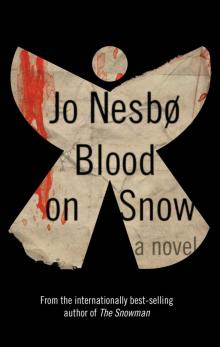 Blood on Snow: A novel
Blood on Snow: A novel Police: A Harry Hole thriller (Oslo Sequence 8)
Police: A Harry Hole thriller (Oslo Sequence 8) Doctor Proctor's Fart Powder: The Great Gold Robbery
Doctor Proctor's Fart Powder: The Great Gold Robbery Bubble in the Bathtub
Bubble in the Bathtub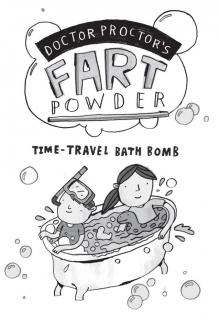 Doctor Proctor's Fart Powder: Time-Travel Bath Bomb
Doctor Proctor's Fart Powder: Time-Travel Bath Bomb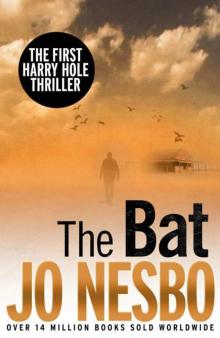 The Bat
The Bat Doctor Proctor's Fart Powder: The End of the World. Maybe.
Doctor Proctor's Fart Powder: The End of the World. Maybe. Silent (but Deadly) Night
Silent (but Deadly) Night Who Cut the Cheese?
Who Cut the Cheese? Headhunters
Headhunters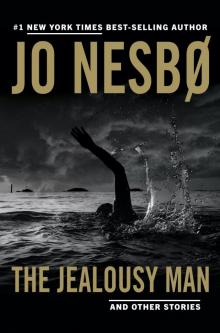 The Jealousy Man and Other Stories
The Jealousy Man and Other Stories Harry Hole Mysteries 3-Book Bundle
Harry Hole Mysteries 3-Book Bundle The Thirst
The Thirst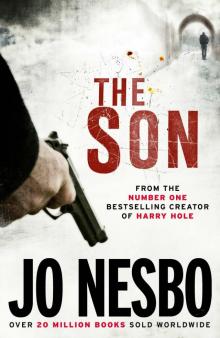 The Son
The Son The Redeemer
The Redeemer The Kingdom
The Kingdom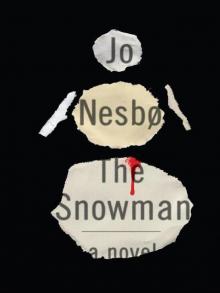 The Snowman
The Snowman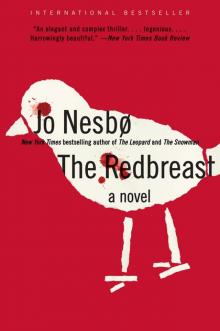 The Redbreast
The Redbreast Phantom
Phantom Macbeth
Macbeth The Leopard
The Leopard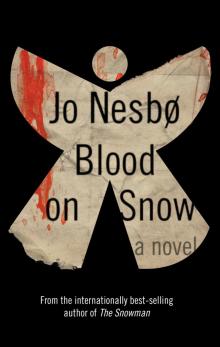 Blood on Snow
Blood on Snow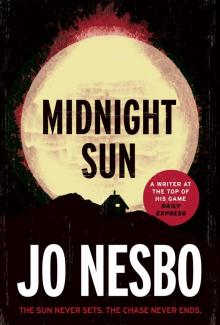 Midnight Sun
Midnight Sun The Redbreast (Harry Hole)
The Redbreast (Harry Hole)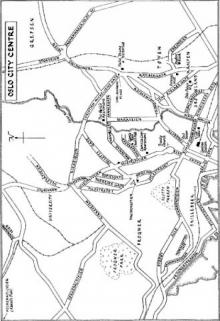 The Devil's Star
The Devil's Star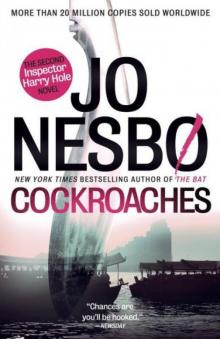 Cockroaches
Cockroaches The Magical Fruit
The Magical Fruit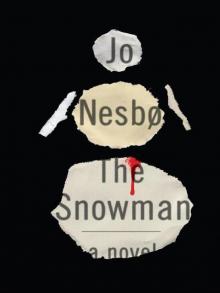 The Snowman: A Harry Hole Novel
The Snowman: A Harry Hole Novel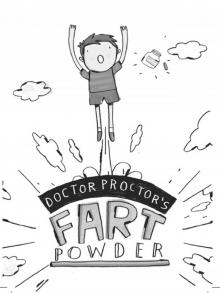 Doctor Proctor's Fart Powder
Doctor Proctor's Fart Powder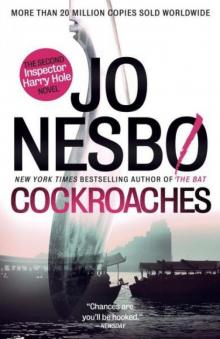 The Cockroaches
The Cockroaches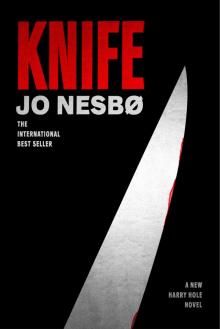 Knife
Knife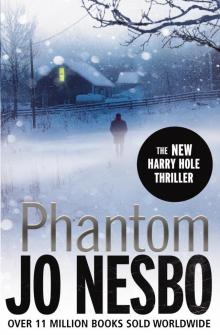 Phantom hh-9
Phantom hh-9 The Redbreast hh-3
The Redbreast hh-3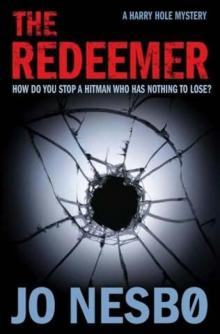 The Redeemer hh-6
The Redeemer hh-6 The Leopard hh-8
The Leopard hh-8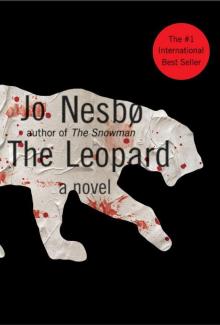 The Leopard: An Inspector Harry Hole Novel
The Leopard: An Inspector Harry Hole Novel The Great Gold Robbery
The Great Gold Robbery Police hh-10
Police hh-10 The End of the World. Maybe
The End of the World. Maybe The Thirst: Harry Hole 11
The Thirst: Harry Hole 11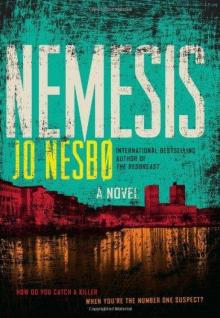 Nemesis - Harry Hole 02
Nemesis - Harry Hole 02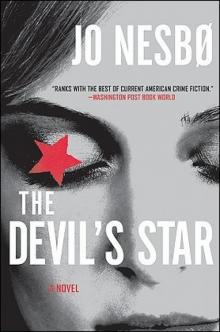 The Devil's star hh-5
The Devil's star hh-5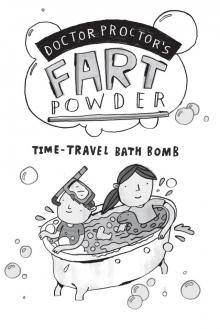 Time-Travel Bath Bomb
Time-Travel Bath Bomb